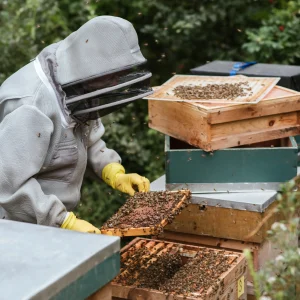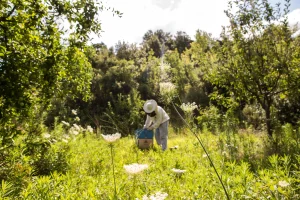As the cooler weather approaches, beekeepers need to take proactive measures to ensure they’re protecting bees in winter. The colder temperatures and reduced forage availability can pose significant challenges for bees during this season. By implementing a few key strategies, beekeepers can help their bees thrive through winter and set them up for a successful spring. Here are a few practical methods to protect bees during the winter months:
Provide Sufficient Food Stores
During winter, natural forage becomes scarce, making it crucial to ensure that your bees have an adequate food supply. Bees require sufficient honey stores to sustain themselves throughout the colder months. We recommend leaving around 20-25 kilograms of honey per hive, which should be enough to support the colony until spring.
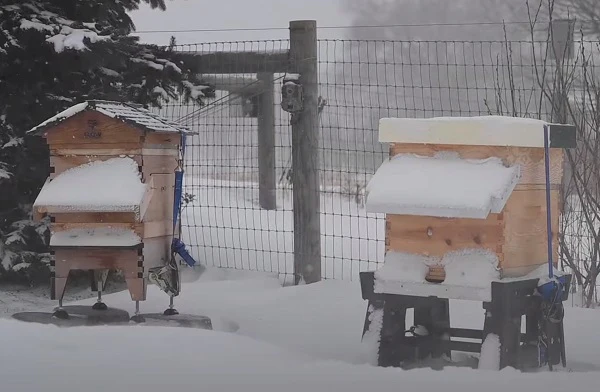
Insulate the Hive
Insulating the hive can help bees maintain an optimal temperature inside and reduce heat loss. Insulation materials like foam, hessian, or old carpet around the hive can help protect bees from extreme temperature fluctuations. Be sure to leave the hive entrance clear for proper ventilation.
Ventilation and Moisture Control
Proper ventilation is essential to prevent excess moisture buildup in the hive, which can lead to fungal diseases. Use moisture boards or moisture-absorbing materials to regulate humidity levels within the hive.
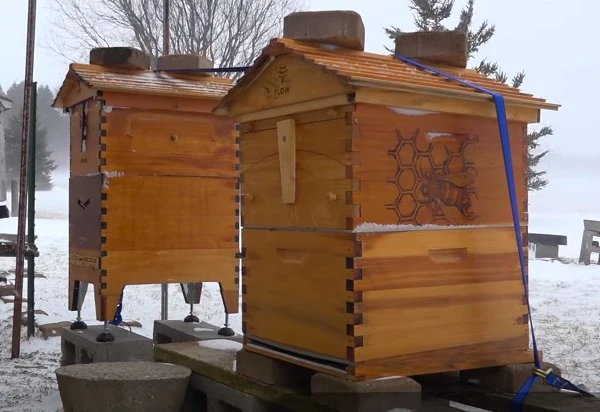
Reduce Hive Entrance Size
During winter, it is advisable to reduce the hive entrance to a smaller size to prevent cold drafts from entering and to enable bees to better defend against potential intruders. We recommend reducing the hive entrance to approximately 8-15mm.
Conduct Minimal Hive Inspections
Although bees generally remain less active during winter, it is essential to conduct periodic hive inspections but keep this to an absolute minimum. Observe the population size, honey stores, and overall condition of the colony. Avoid prolonged inspections to minimise the disruption to the hive’s warmth.
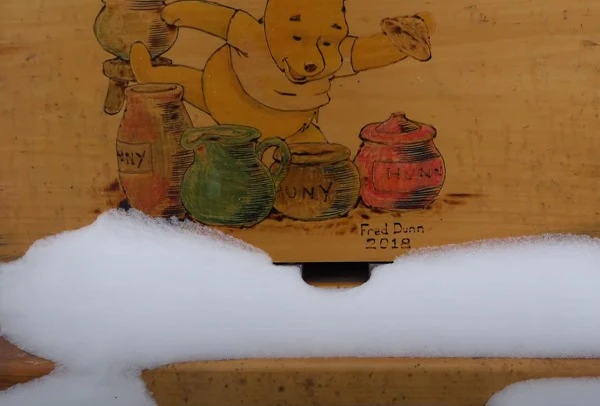
Preparing your bees for winter is critical to successful beekeeping. By following these tips, you can help ensure the health and survival of your bee colonies during the colder months. For additional resources or education on beekeeping at home, we highly recommend enrolling in Flow’s online beekeeping course to ensure you are equipped with the knowledge to help her hive thrive. Click here to learn more.
